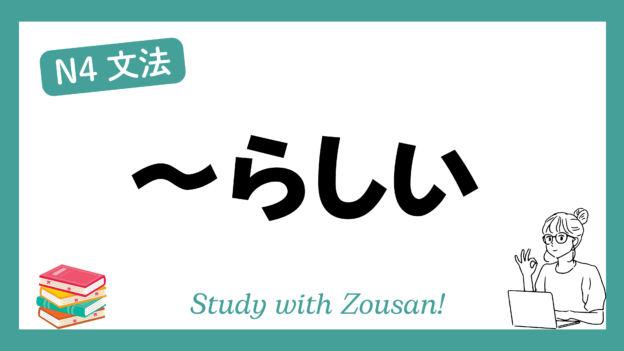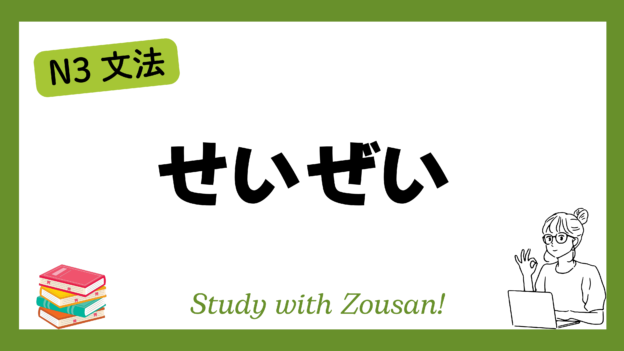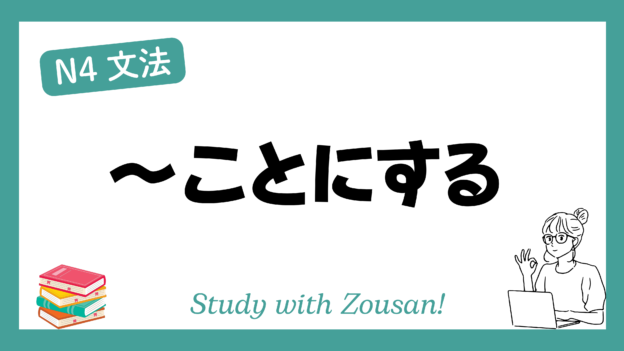N4文法:~らしい
Meaning:
-
Guess based on indirect information: “It seems like…” / “I heard that…”
-
Expressing characteristic or essence: “Typical of…” / “In the style of…”
-
Evaluating proper behavior: “Acting like…” / “Fitting for…”
~らしい has three main usages:
-
-
- To express a guess based on indirect information, rumors, or hearsay, meaning “it seems like” or “I heard that.”
- To describe the characteristic or essence of something, when something embodies its defining traits.
- To comment on behavior or qualities that are fitting or proper for a certain subject.
-
※Note:
・~らしい is commonly used after nouns or verbs in the plain form to express speculation or evaluation.
・This structure differs from ~そうだ as ~らしい is based on indirect information or feelings, not direct observation.
・~らしい can also express typicality, highlighting the essence or nature of something or the appropriateness of an action.
Structure:
| Verb (casual form) | + らしい + らしく + らしくない |
| Noun | |
| な-adjective | |
| い-adjective |
Example:
❶Guess based on indirect information:
-
-
-
🌟 今日は寒いらしいです。
(きょう は さむい らしい です)
It seems like it’s cold today. -
🌟 彼はもう帰ったらしい。
(かれ は もう かえった らしい)
I heard that he already went home. -
🌟 あの店はおいしいらしいです。
(あの みせ は おいしい らしい です)
I heard that that restaurant is good.
-
-
➋Expressing characteristic or essence:
-
-
-
🌟 このデザインはとても日本らしい。
(この デザイン は とても にほん らしい)
This design is very Japanese. -
🌟 彼は本当に子供らしい。
(かれ は ほんとうに こども らしい)
He’s really like a child. -
🌟 今日は春らしい天気ですね。
(きょう は はる らしい てんき です ね)
The weather is really spring-like today.
-
-
❸Evaluating proper behavior:
-
-
-
🌟 彼女は教師らしい態度で話していた。
(かのじょ は きょうし らしい たいど で はなして いた)
She was speaking with an attitude fitting for a teacher. -
🌟 彼はリーダーらしい行動をしている。
(かれ は リーダー らしい こうどう を している)
He is acting like a leader. -
🌟 あなたももっと大人らしくなってほしい。
(あなた も もっと おとな らしく なって ほしい)
I want you to be more mature. -
🌟 彼の話し方は紳士らしい。
(かれ の はなしかた は しんし らしい)
His way of speaking is gentlemanly.
-
-









